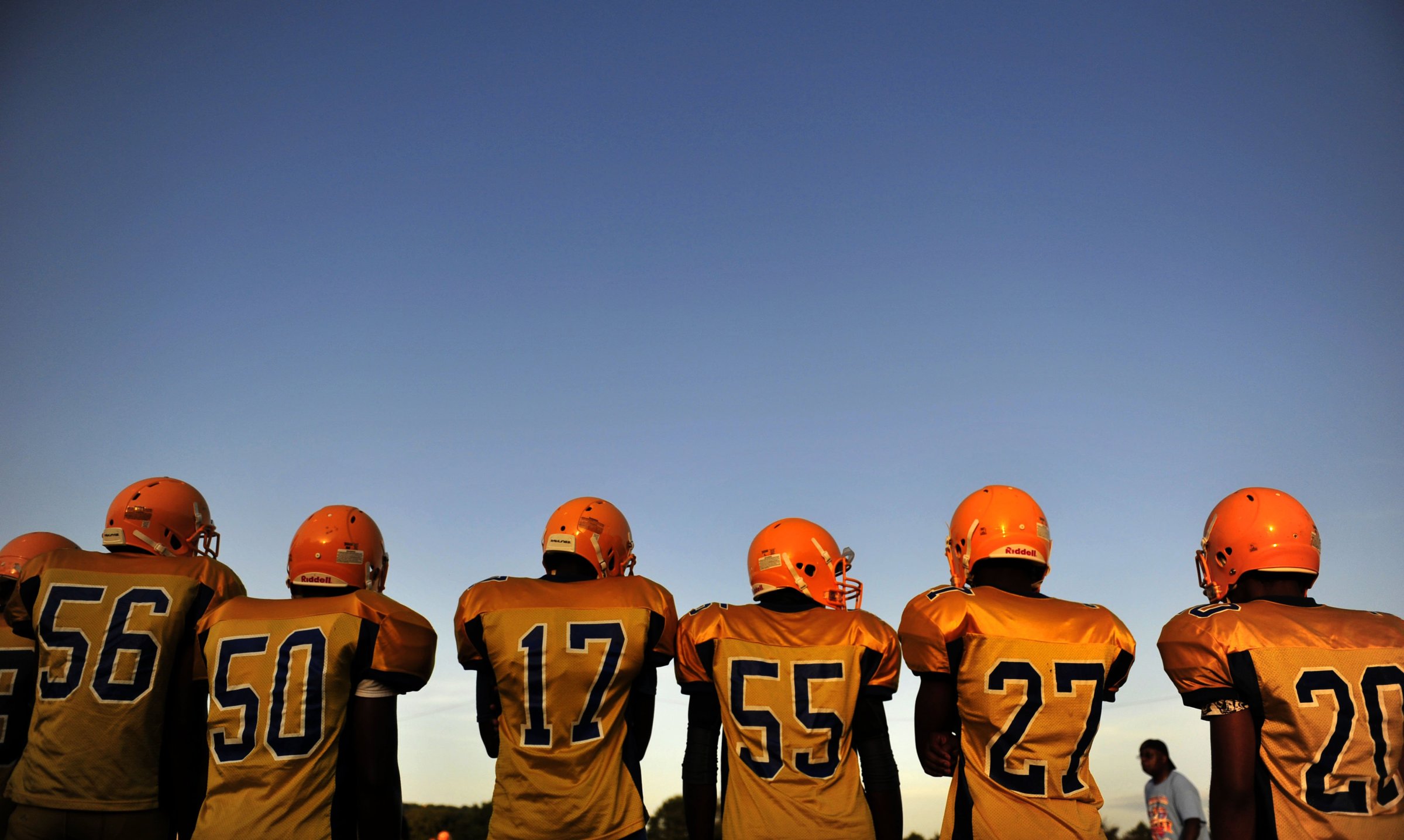
So where would you like to start?
How about the threat of traumatic brain injury, particularly since studies show that teenage athletes may be even more susceptible to concussions than their adult counterparts or even younger children. Or maybe the way in which football perpetuates a macho cult and culture in which women are sycophant sluts and gays girlie-men. Or simply the economics of maintaining programs where costs are excessively high for stadium maintenance and insurance given paltry participation and attendance.
Read TIME’s cover story “Is Football Worth It?”
It seems easy to make a case for the banning of high school football.
But it won’t be.
I have seen the very best of it, the way in which it gathers an otherwise divided community together on a Friday night. I have seen the beauty of it, stadiums lit up like rocket ships in an otherwise drab American landscape where the wind whistles across the stands. I have seen the beast of it—the pressure, the overemphasis, 18-year-old stars becoming 19-year-old has-beens with nothing but stories that inevitably become stale. In the middle is a place for high school football. A legitimate place.
Except for the fact that what a teenage kid does on the field today may also leave him without a mind when he is in his 60s because of chronic traumatic encephalopathy. Or at the very least, with alterations in mood and cognition as well as increased depression. Studies, like statistics, can be used to come up with just about any outcome the researcher wants. Sample sizes of those examined are very small. But there are too many findings out there showing the risk of concussion for young players, even if it’s only one concussion.
You can teach proper tackling technique all you want, head up and shoulders square. You can legislate all the new rules you want. But football is violence. Violence is American. It is amazing that players are not allowed to carry guns on the field.
I unabashedly like the violence of football, although I do wonder about a game in which you have to wear as much equipment as medieval knights did in a joust. It is not a good sign of future health when a plastic projectile is clamped around your head.
I am a voyeur. But I also realize that the kids on the field are not simply high school kids. They are sacrificial lambs. Many will make it through without traumatic brain injury, but some will not. The problem is, nobody gets to choose. Every time there is impact, there is the risk of future harm. It’s like walking through a minefield.
Playing the game is still the players’ choice, or more likely the choice of their parents, who in their delusional dreams that Johnny and Jimmy will get to the pros, use their children as cannon fodder against their own bleak disappointments. It’s been ever thus and will remain ever thus.
What is needed is an organized campaign much like the campaign on the dangers of smoking. If high school kids want to play football and their parents want them to play football, then they must be reminded of the risks. Over and over and over. Just as a smoker is every time he buys a pack of cigarettes with the warning label about lung cancer, heart disease, emphysema and complications of pregnancy.
Let’s be honest for once in our lives without obstructionism by lobbyist lawyers for the massive football machine.
WARNING: MEDICAL STUDIES HAVE DETERMINED THAT FOOTBALL CAN RESULT IN EARLY ALZHEIMER’S, DEPRESSION AND DANGEROUS MOOD SWINGS FAR BEYOND THOSE OF THE GENERAL POPULATION.
It is difficult for any teenager to truly embrace the concept that what he does on the field today could have an irreversible impact 40 or 50 years from now. It is difficult for anyone to look far into the future. But at this point it is a moral obligation.
Put the warning in the locker room instead of the tired Vince Lombardi quotes. Slap it on the side of every helmet instead of all those decals. Announce it on the scoreboard after every quarter. Substitute it for the ad from the local car dealer. As parents and fans walk into the stadium at the beginning of the season, give them a handout showing what the brain of a former football player looks like when it has atrophied.
This is no facetious campaign. It is a public service so everybody knows what high school kids are getting into.
Will they still be ready for some football after that?
Only if they and those who love them have already lost their minds.
Bissinger is the Pulitzer Prize–winning author of Friday Night Lights
More Must-Reads From TIME
- The 100 Most Influential People of 2024
- The Revolution of Yulia Navalnaya
- 6 Compliments That Land Every Time
- What's the Deal With the Bitcoin Halving?
- If You're Dating Right Now , You're Brave: Column
- The AI That Could Heal a Divided Internet
- Fallout Is a Brilliant Model for the Future of Video Game Adaptations
- Want Weekly Recs on What to Watch, Read, and More? Sign Up for Worth Your Time
Contact us at letters@time.com